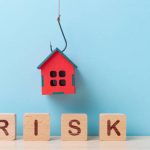The Importance of Mortgage Loan Fraud Audits: Protecting Your Financial Interests
In the complex world of real estate and home financing, the risk of mortgage loan fraud has grown significantly in recent years. With the increasing number of mortgage-related transactions, there has been a surge in fraudulent activities involving lenders, borrowers, and even third-party facilitators. Mortgage loan fraud audits have emerged as a crucial tool to identify and prevent such activities, ensuring that both lenders and borrowers are protected from financial losses and legal complications.
Securitization loan audits play a significant role in this process by tracing the origins and conditions of loan documentation, identifying irregularities, and revealing fraudulent activities that could lead to significant financial risk. By focusing on the prevention and identification of mortgage loan fraud, these audits serve as a fraud stopper, safeguarding your financial interests and providing peace of mind.
In this comprehensive blog, we will explore the significance of mortgage loan fraud audits, the process of securitization loan audits, how fraud stoppers can play a pivotal role in identifying fraudulent transactions, and why it’s essential to incorporate these audits into your financial strategy. Let’s dive into the key benefits of mortgage loan fraud audits and how they can be your first line of defense against financial jeopardy.
- Understanding Mortgage Loan Fraud: What You Need to Know
Mortgage loan fraud is a serious financial crime that involves the misrepresentation, concealment, or distortion of key information in mortgage applications, documentation, or related processes. It can take many forms, such as falsifying income information, inflating property values, or misrepresenting the borrower’s qualifications to obtain a loan. This fraudulent activity can lead to both financial and legal consequences, making it essential to identify and address fraud before it escalates.
Loan fraud not only jeopardizes the financial stability of individual borrowers but also negatively affects financial institutions, investors, and the broader real estate market. Fraudulent mortgage loans can increase default rates, inflate property prices, and distort the value of mortgage-backed securities (MBS), ultimately leading to market instability. In such a high-stakes environment, it’s imperative to have a robust system for detecting, preventing, and addressing mortgage fraud.
Mortgage loan fraud audits are designed to uncover discrepancies and fraudulent activities within the mortgage process. These audits evaluate loan documents, identify inconsistencies, and assess whether the transaction complies with legal and financial standards. By conducting thorough audits, professionals can help safeguard your financial interests and mitigate the risks associated with loan fraud.
- The Role of Securitization Loan Audits in Mortgage Fraud Detection
Securitization loan audits are specialized audits focused on evaluating mortgage-backed securities (MBS) and identifying any underlying issues with the loans involved. These audits are especially useful in the context of mortgage loan fraud because they go beyond the standard loan review process by analyzing the structure and validity of securitized loans.
Securitization involves bundling multiple mortgage loans into a single security that is then sold to investors. This process can create complexities in tracking individual loans, making it more difficult to detect fraudulent activities. Securitization loan audits help unravel these complexities by thoroughly reviewing loan documentation, loan servicing history, and the chain of ownership for the underlying assets. By identifying any irregularities in the securitization process, these audits can expose fraudulent practices that may have been overlooked during the original loan approval process.
One of the key benefits of securitization loan audits is their ability to uncover discrepancies that could indicate fraud. These audits scrutinize critical components such as loan origination, underwriting practices, appraisal evaluations, and title transfers. By doing so, they identify potential fraudulent activities, such as inflated appraisals, falsified borrower information, or irregularities in loan terms that might have been intentionally manipulated to facilitate fraud.
Securitization loan audits also provide valuable insights into the overall quality of mortgage-backed securities. Investors in MBS rely on accurate data to assess the risk associated with their investments. If fraudulent activities are present in the underlying loans, it can significantly affect the value and risk profile of the security. A securitization audit helps uncover these issues and provides investors with critical information that can protect their investments from financial loss.
- Fraud Stoppers: How Mortgage Loan Fraud Audits Act as Preventative Measures
The introduction of fraud stoppers—such as mortgage loan fraud audits—has proven to be an effective method for detecting and preventing fraudulent activities in the mortgage industry. These fraud stoppers work by identifying irregularities and inconsistencies within loan documents, helping to flag potential fraud before it can have a negative impact on borrowers or lenders.
Fraud stoppers are essential tools for protecting both parties involved in a mortgage transaction. They provide an extra layer of scrutiny during the loan application and approval process, ensuring that all information is accurate, legitimate, and in compliance with legal and financial regulations. By utilizing fraud stoppers, lenders can mitigate the risk of fraud, which could lead to significant financial losses, regulatory fines, and damage to their reputation.
Fraud stoppers are also beneficial for borrowers, as they ensure that the terms and conditions of the loan are valid and fair. Fraudulent practices, such as inflating income or property values, can lead to borrowers being saddled with debt they cannot afford or facing legal challenges due to inaccurate documentation. Mortgage loan fraud audits, acting as fraud stoppers, ensure that the loan documentation is correct, transparent, and legitimate, ultimately protecting the borrower’s financial stability.
Additionally, fraud stoppers such as mortgage loan fraud audits play a critical role in preventing the systemic impact of fraud on the broader financial market. When fraud is allowed to go undetected, it can contribute to the collapse of entire sectors within the housing and financial markets. Mortgage loan fraud audits help minimize these risks by addressing fraudulent activities at their core, ensuring that the mortgage industry remains secure and stable.
- The Advantages of Conducting Mortgage Loan Fraud Audits Early in the Process
The earlier fraud is detected, the less severe the consequences will be. By conducting mortgage loan fraud audits early in the mortgage process, both lenders and borrowers can prevent the escalation of fraudulent activities and minimize the potential risks associated with undetected fraud. Early detection can save valuable time, resources, and prevent legal complications down the line.
One of the most significant advantages of conducting fraud audits early is the opportunity to rectify any issues before the loan is finalized. If discrepancies are identified early in the process, the loan can be amended or even canceled if necessary. For example, if a borrower’s income is inflated or if an appraisal is intentionally manipulated, these issues can be flagged before they escalate into larger problems that might lead to a default or foreclosure.
Early audits also provide a proactive approach to preventing fraud from occurring in the first place. By establishing strong procedures for monitoring loan origination, underwriting, and documentation, lenders can minimize the opportunity for fraudulent activities to take root. This proactive approach also serves as a deterrent for those attempting to commit fraud, as it sends a clear message that fraudulent practices will not be tolerated.
From a borrower’s perspective, early fraud audits can also ensure that they are entering into fair and legitimate loan agreements. This can help them avoid falling victim to predatory lending practices or receiving unfavorable loan terms. By detecting fraud early on, borrowers can take the necessary steps to secure more favorable terms, such as refinancing or renegotiating the loan.
- Why Mortgage Loan Fraud Audits are Essential for Long-Term Financial Stability
Mortgage loan fraud audits not only serve as a tool for protecting individual loans but also play a significant role in ensuring long-term financial stability. The financial consequences of mortgage loan fraud can be far-reaching, affecting everything from individual borrowers to the overall economy.
By investing in mortgage loan fraud audits, you are taking a proactive step to protect your financial future. These audits help to identify fraudulent transactions, correct inconsistencies, and prevent potentially disastrous outcomes that could harm your credit, reputation, or financial position. They also act as a safeguard against the larger systemic risks that can arise from mortgage fraud, which can lead to market instability, economic downturns, and financial crises.
In the context of securitization, mortgage loan fraud audits offer added security for investors in mortgage-backed securities. Fraudulent loans can have a cascading effect on the value of MBS and undermine investor confidence in the financial market. Securitization loan audits help to ensure the integrity of these securities, reducing the risk of a financial collapse and providing greater stability in the real estate market.
For lenders, conducting fraud audits is essential for maintaining compliance with regulatory standards and protecting against potential legal liabilities. Failure to address fraud can lead to costly fines, lawsuits, and reputational damage. Regular audits not only help mitigate these risks but also demonstrate a commitment to ethical lending practices, building trust with borrowers and investors alike.
Conclusion: Protect Your Financial Future with Mortgage Loan Fraud Audits
Mortgage loan fraud audits are an essential tool in the fight against financial crime. They not only help detect and prevent fraud but also provide peace of mind for lenders and borrowers alike. By incorporating securitization loan audits and fraud stoppers into your financial strategy, you can protect your investments, ensure regulatory compliance, and safeguard your financial future.
Don’t wait until it’s too late—take proactive measures now to secure your financial interests. Contact us today at (877)-399-2995 or visit Mortgage Audits Online to learn more. Secure your financial future with confidence!




